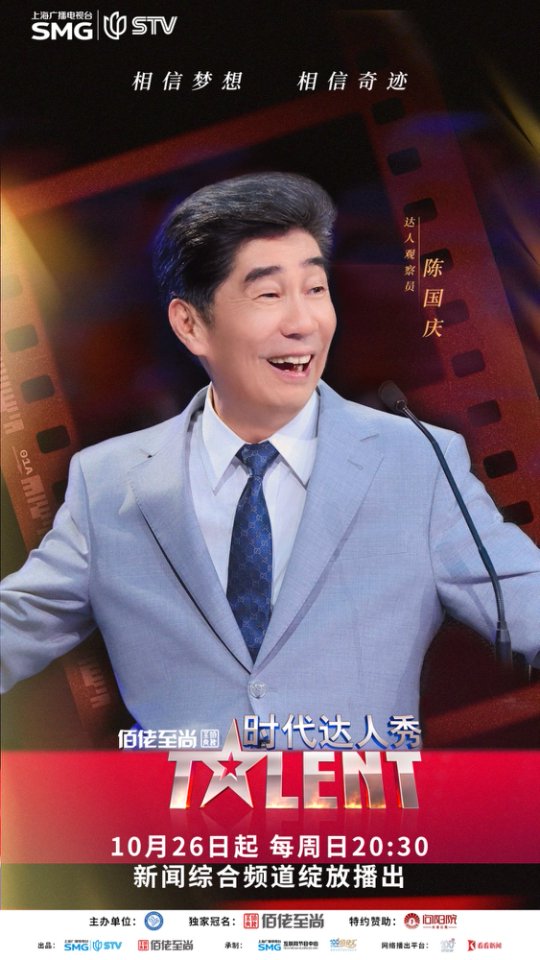
How will you spend the second half of your life?
Should one revolve around the stove or around their grandchildren?
Of course, you can do what they did...
As the first talent competition reality show on the entire network focusing on people over 45 years old, inheriting the classic IP of "China's Got Talent", "Times Talent Show" started airing on Shanghai News Channel on October 26 and airs every Sunday at 20:30. It has become a "warm moment" for many Shanghai families.
Since its premiere three episodes ago, the contestants' stories have not only gone viral on social media, but have also fostered a heartwarming family interaction model: many Shanghai families have shared the talents and dream-chasing stories of their "treasure parents." Family members who were once engrossed in their own phones have been reunited by the captivating stories on screen, sharing common topics and emotions. The genuine energy of the contestants has moved even the observers, Chen Guoqing, Kong Xiangdong, Shi Yan, and Fang Jun, who have repeatedly cheered on these talented individuals who are living such vibrant lives.

Expert Observer Chen Guoqing
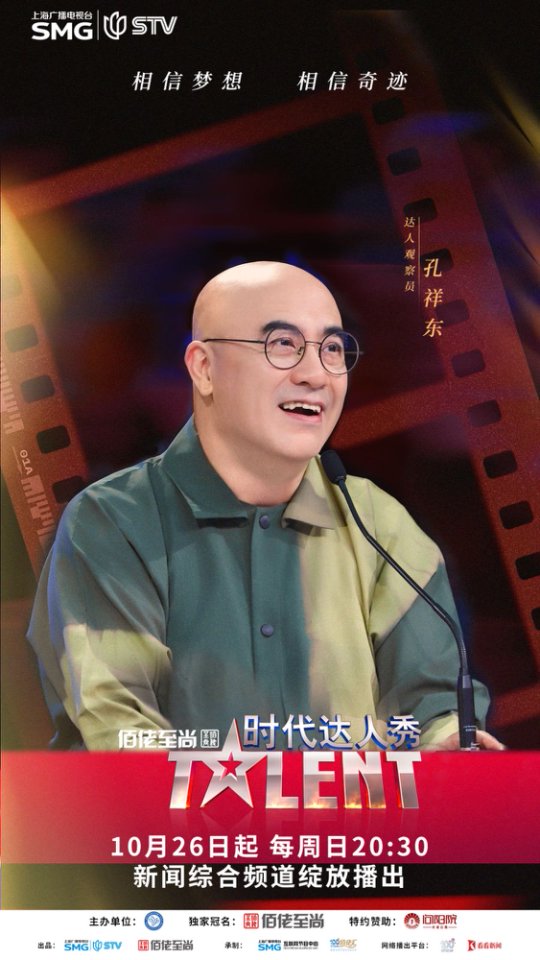
Expert Observer Kong Xiangdong
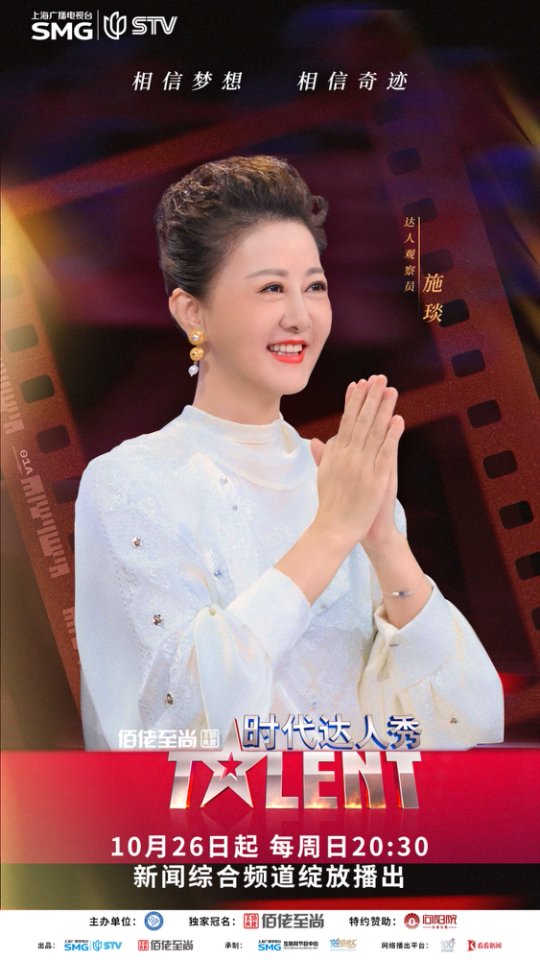
Observer Shih Yan

Fang Jun, expert observer
In the first episode, the wheelchair duet dance between Shanghai auntie Yin Hong and her daughter became a tearjerker for countless families. Yin Hong, who has a disability in her left leg due to polio, used to be reluctant to attend her daughter's parent-teacher meetings because of her low self-esteem. However, her encounter with wheelchair dance in 2017 completely changed her life. On stage, mother and daughter danced in perfect harmony, the wheelchair seemingly coming to life, displaying power and beauty in its rotations and rises. This short dance not only resonated with the older generation but also allowed the younger generation to understand the deep, mutual love between mother and daughter.
Sixty-year-old Zhou Mei is redefining the meaning of "youth" on the catwalk. As one of China's first generation of professional models, she faded from the stage early due to hereditary gray hair, remaining silent for over two decades. When she returned to the spotlight in glamorous attire, she not only stunned the audience with her elegant figure but also showcased the composure and confidence that comes with age. Her presence makes "youth a state of being, not just a number" more than just a slogan, becoming a tangible and relatable example of life.
The touching aspect of "Talent Show" lies in its avoidance of deliberately emphasizing "inspiration" or "suffering," allowing the resilience of life to flow naturally. 65-year-old Qian Gendi, though without professional training, spontaneously formed a folk theater troupe of over twenty people after retirement out of passion, taking on multiple roles as writer, director, and performer, bringing comedy to the community stage. When she finally received on-site guidance from idol observer "Uncle Aqing" Chen Guoqing, the charm of the Shanghai dialect and the inheritance of art instantly struck a chord with the audience.
Interesting, useful, and topical
"The Talent Show" adopts the creative logic of "interesting, useful, and topical" and pioneers a new narrative style for the silver-haired theme, attracting the whole family back to the living room TV, making the program not only entertaining but also thought-provoking.
"Fun" is the key to breaking down age prejudices. The "Wai Nao Duo" (a nickname for the group) opened the third episode with a Shanghainese song, "Old 'Ghost' Heart Never Dies," expressing the open-mindedness of Shanghai's "old-timers": "White hair is increasing, but I'm content and comfortable." Their playful singing style reveals a calm acceptance of life's experiences, and the casual "Why not?" perfectly encapsulates the carefree spirit of Shanghainese people who "live in the moment." What if life enters its later stages? Wu Liqiang and his partners conveyed through their song that even as time changes, life can still be vibrant.
"Usefulness" is the sincere transmission of life wisdom. 70-year-old Wu Qiaoyun, who crossed over into the world of face-changing, transformed the "impossible" into "I can do it." During her apprenticeship, her master broke the traditional rule of "passing on the art only to men" for her; on her journey to pursue her dreams, she found a romantic marriage that transcended age with a youthful spirit. Her story powerfully challenges the stereotypical notion of "doing certain things at certain ages," setting a true example of "lifelong learning" for parents and inspiring young people with the power of perseverance.
"Having topics to discuss" allows the program to transcend entertainment and extend into discussions about daily family life. During the broadcast, topics such as "age and beauty" and "pursuing dreams in old age" continued to generate buzz. The appearance of 99-year-old Chen Fengying brought the discussion to a climax—she demonstrated her calligraphy skills on the spot and shared her happy daily life in the nursing home and her health tips, allowing the audience to see the diverse possibilities of old age life and becoming a vivid footnote to the booming development of Shanghai's silver economy and the continuous upgrading of elderly care services.
Redefining the "Second Half of Life"
This Sunday, the program once again brings together ordinary people from all walks of life, who, with their extraordinary perseverance and talent, collectively demonstrate how to transcend age, tradition, and self.
When Dai Dali, nearing 80, performed "aerial ballet" and "one-legged inverted hang" on a pole, she not only showcased the flexibility and strength accumulated over 15 years of dance experience, but also completely shattered societal stereotypes about advanced age. As China's first elderly pole dancer to perform on an international stage, her synchronized dance with her 24-year-old partner, spanning a 55-year age difference, became the most moving scene of the entire event, perfectly embodying the vitality and passion of ageless life. From her debut on "China's Got Talent" at 65 to her return on "Times' Got Talent" at nearly 80, Dai Dali proclaims with every spin and leap: dreams and passion never fade.
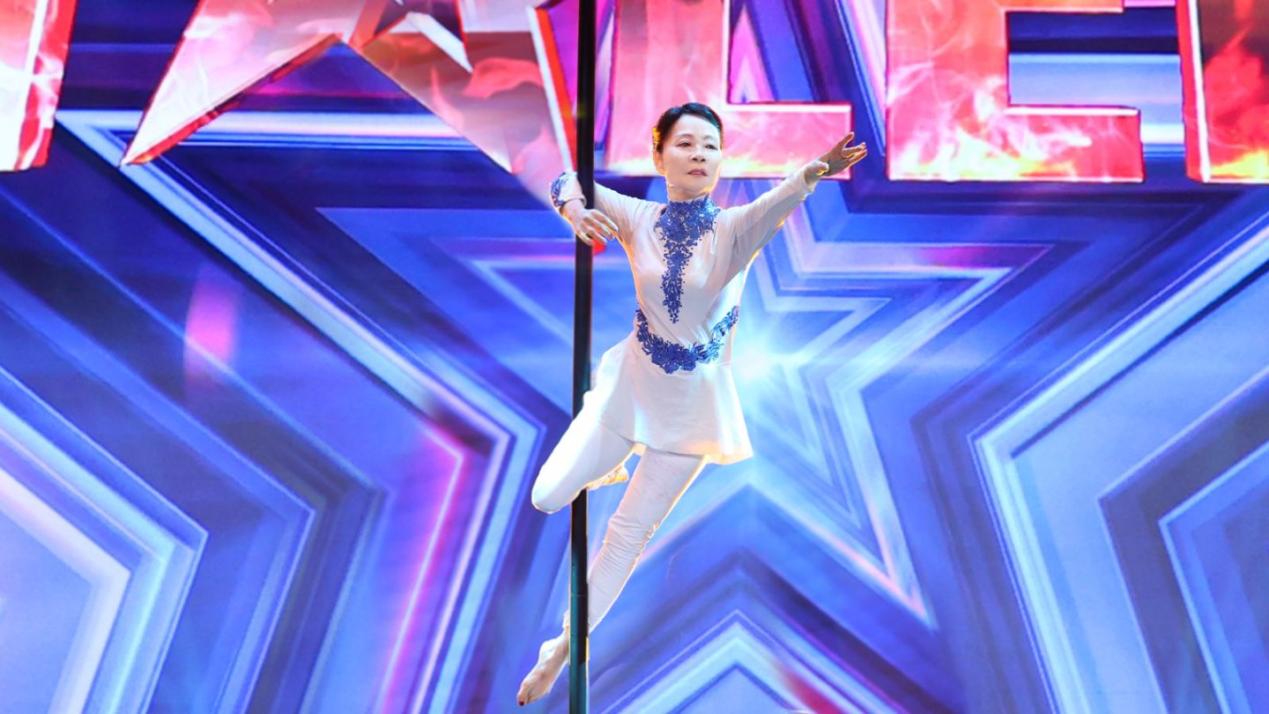
Dai Dali, an 80-year-old senior pole dancer
Similarly challenging age boundaries is the "Fashionable Gentlemen Group" from Shanghai. This group of charming men aged 45 to 70, with an average height of over 1.8 meters and impeccable taste, effortlessly carry off various styles of clothing. They prove with their "ageless, boundless, and carefree" attitude that style and charm only become more refined with age.

A group of stylish older men from Shanghai
On this stage, the same spirit of transcendence is reflected in the innovative expression of intangible cultural heritage. Members of the Shanghai Jing'an District Stone Carrying and Stone Locking Association have breathed new life into this ancient strength training practice, originating in the Spring and Autumn and Warring States periods and popular in northern China. The 70-pound stone locks from the Republic of China era wielded with powerful force in their hands, showcasing the masculine energy and vibrant transmission of this intangible cultural heritage.
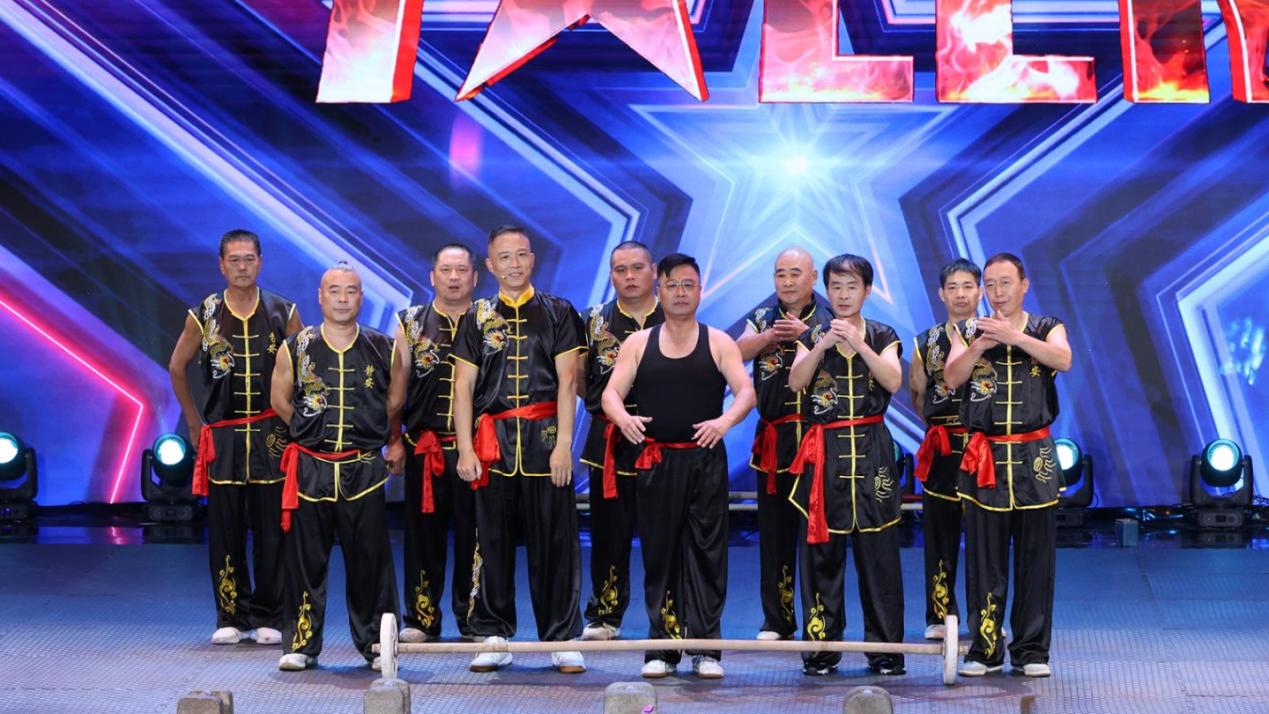
Members of the Shanghai Jing'an District Stone Carrier and Stone Lock Association
The comments left by young viewers under "The Talent Show" highlighted another layer of significance of the program: building bridges for intergenerational communication and guiding people to think about what passion is, what age is, and what life truly "relevant to me." The dance between Yin Hong and her daughter made young people realize that "supporting parents in pursuing their dreams is the most heartfelt form of filial piety"; Wu Qiaoyun's romantic story broke the preconceived notion that "the happiness of elders is limited by age," reaffirming the limitless and infinite possibilities of the "second half of life."
The program acts like a mirror, allowing young people to see the passion for life behind their elders' "refusal to grow old," and giving the elders more confidence to "be themselves." "Talent Show" brings Shanghai families back to the big screen, capturing the "talent genes" of the silver-haired generation from a local perspective, and empowering ordinary people to shine with the concept of "finding their own stage." This spotlight, shining on those over 45, illuminates not only the stage but also each viewer's understanding of life: regardless of age, passion never fades, and life always has the potential to flourish.